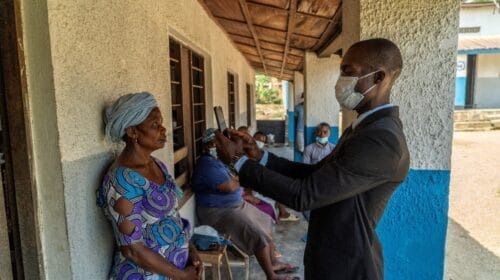Big Brother Naija: Why Nigerians are obsessed with the reality TV show
Within the last five years, the Big Brother Naija reality TV show has become Nigeria’s most watched offering on television. Featuring a diverse mix of housemates drawn from across socioeconmic and cultural lines, this enduring TV content format has become a hot button topic. Now in its sixth season, the show continues to polarise the country. The Conversation Africa’s Joey Akan asked Alex Eloho Umuerri who conducts research into TV and Big Brother Naija, why the show has a strong hold on Nigeria, and about its benefits.
What is Big Brother Naija?
It is a reality television programme that showcases the true characters of participants. Real people are often placed in extraordinary situations and their every moment is recorded as they react to their surroundings.
The idea of reality television programming originated in 1948 in the US when Alan Funt came up with the series Candid Camera. This reality television show has been replicated in different parts of the world.
In Big Brother Naija, housemates are isolated in a house and the dictator/biggie oversees their activities. A prize winner emerges at the end of the show. The programme debuted as season one from 5 March to 4 June 2006. Eleven years later season two of the programme premiered with Efe Ejeba as the prize winner. Since then there has been no stopping it. It’s currently running its sixth season.
Opinions are deeply divided on Big Brother Naija. It has been seriously criticised for showing indecent scenes of nudity and the like. But the producer has also introduced rich content into the programme that explores culture, religion, education and health issues.
Why is it such a big drawcard?
A format is a form of television programme geared towards enlightening, educating or entertaining people. Television programming can therefore vary. The established formats of television broadcasting are news broadcasts, documentaries, drama, interviews, soap operas, musicals, magazine programmes and so on. Reality television is the current fad programming in Nigeria. The other reality television programme types in Nigeria are MTN’s Project Fame, Nigeria’s Got Talent, Glo Naija Sings and Nigerian Idol.
I break down reality television programmes into two types. One is the confined environment programme, where a number of housemates live together over a period of time until a winner emerges to take the prize money.
The other is the television talent show which features participants who present their talents in front of a panel of judges. Through decisions by the panel of judges and voting by the audiences contestants are eliminated until a winner emerges.
It’s useful to look at Big Brother’s attraction to people from two angles.
First, attraction is from people who are interested in becoming housemates in the reality show. This makes people, especially young Nigerians, seek out an audition when there is an opportunity to participate.
The second attraction is from viewers and fans of the programme.
The cultural element of Big Brother Naija is a major pull factor. The show allows participants to promote their cultural identity through dress, work habits and through the way they speak and the language they speak in.
Production techniques are another major attraction. A good example is the use of the cliffhanger, or suspense, when the producer creates heightened interest in the programme on the part of the viewers. The production technique of keeping the housemates and viewers in suspense has been a hallmark feature of the show from inception.
There are lots of other reasons why viewers are attracted to the show. These range from curiosity to pleasure in others suffering and peer influence, to name but a few.
The programme has accumulated a huge fan base. Most viewers are between 18 and 40 years old.
How does Big Brother Naija benefit Nigeria?
In highlighting the contributions to the country, it is only proper to note a major criticism of the programme: the inclusion of obscene scenes created by the housemates through nude postures.
Another concern has been around allegations of cheating and manipulation of votes to favour. However, it has not been possible to prove these allegations.
Big Brother Naija contributes to the entertainment industry in Nigeria in significant ways. Firstly, it has led to major growth in the industry.
Secondly, it has opened up the entertainment industry for producers, directors, actors, and members of technical crew and led to job creation.
Thirdly, the entertainment industry in Nigeria has immensely benefited from special production techniques with the use of multiple cameras that can capture scenes in the house.
Read more: ‘Big Brother Naija’: Nigeria’s unlikely public relations campaign?
Fourth, it has attracted a great deal of advertising interest which has generated revenue for the companies involved in the production, and led to greater interest in the brands being promoted.
Lastly, the programme opens up an outlet for supplies of various products – for example food supplies – thus scaling up the chain of economic activities.
What impact has it had on Nigerian society?
When we talk of legacy there’s both good and bad.
On the good side, the programme can be said to be a training ground for potential stars. It has been a feeder show for the music industry, film, drama, advertisement world and numerous other outlets in the entertainment industry.
We also need to understand that it has left a legacy of hard work for young people. It is obvious that the quest to win the prize helps to inculcate the desire of hard work in the housemates.
On the negative side, it’s incumbent on the producer Multichoice to seek advice from indigenous producers to ensure that the indecent attributes of the reality show are removed.
Author: Alex Eloho Umuerri – Associate Professor, Benson Idahosa University ![]()



